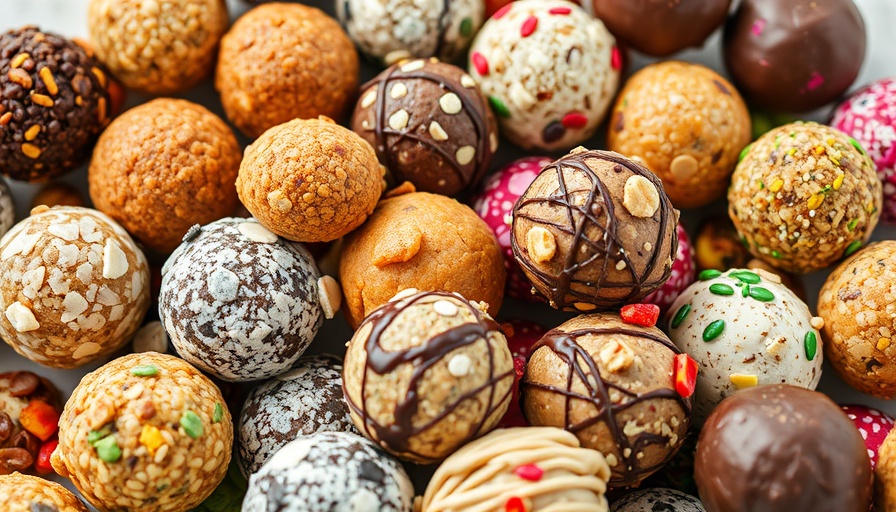
Unpacking the Joy of Homemade Energy Balls
With the rise of clean eating and a focus on nutritional value, homemade snacks like energy balls are becoming staples for those pursuing healthier lifestyles. These little bites of goodness are not only nutritious, but they're also incredibly versatile, making them ideal for meal prep, quick snacks, or post-workout fuel. With Danny's latest video, 3 Easy ENERGY BALLS You Can Make Today (No-Bake Recipes!), a world of flavor and health lies just ahead!
In 3 Easy ENERGY BALLS You Can Make Today (No-Bake Recipes!), the discussion dives into healthy snack preparation, exploring key insights that sparked deeper analysis on our end.
Simple and Nutritious: The Perfect Grab-and-Go Snack
Energy balls pack a punch—they're loaded with proteins, healthy fats, and fibers, allowing them to serve as perfect snacks anytime. As highlighted in the video, creating these delightful treats is a straightforward process, requiring only one bowl and minimal effort! Each recipe features whole food ingredients like rolled oats, nut butter, and seeds, which are not only nourishing but also support your macro and micronutrient needs.
Flavor Profiles to Delight Your Palate
In the video, three enticing flavors are introduced: cozy pumpkin spice, vibrant matcha green tea, and classic peanut butter oatmeal chocolate chip. Each flavor not only satisfies your sweet tooth but also offers various health benefits. For instance, the pumpkin spice energy balls incorporate healthy spices like cinnamon and nutmeg, known for their anti-inflammatory properties, making them a fantastic seasonal treat.
Meal Prep Made Easier
These energy balls are a game-changer for those seeking convenience in their meal prep routine. Imagine hassle-free weeks filled with nutritious snacks that require minimal planning! As Danny suggests, doubling or tripling the recipes ensures you’ll never run out, storing them seamlessly in the refrigerator for up to two weeks. This creation process transforms your kitchen into a health-forward hub, perfect for busy weekdays.
Impact of Clean Eating on Wellness
With clean eating at the forefront of health consciousness, these energy balls exemplify how simple recipes can fit into an overall balanced diet. They are not just snacks; they reflect a lifestyle choice that prioritizes whole foods, helping to enhance gut health and provide an immunity boost. By making small yet impactful dietary changes, individuals can experience improved energy levels, both physically and mentally.
Why Whole Foods Matter
Incorporating whole foods into your diet, as emphasized in Danny's video, is key to achieving optimal health. Whole foods are nutrient-dense and provide essential vitamins and minerals that heavily processed alternatives often lack. This means that with every bite of these energy balls, you’re fueling your body with what it truly needs, making them aligned with diets like Mediterranean and plant-based.
A Note on Ingredients: Going Beyond Ordinary
From almond butter to protein powder, exploring different ingredients in energy balls can lead you to discover new flavor profiles and nutritional benefits. For example, using hemp seeds or chia seeds in your energy balls not only adds texture but also fortifies them with omega-3 fatty acids—crucial for brain health. It's a reminder that what you choose to include in your recipes can significantly affect overall health.
Final Thoughts: Embrace Your Healthy Journey
The beauty of these no-bake energy balls lies in their adaptability. They can easily be modified to fit any dietary requirements—be it gluten-free, dairy-free, or sugar-free. The world of healthy eating doesn't need to be mundane, and with energizing snacks like these, food can remain a source of joy and vitality. So why not try your first batch? Dive into these recipes, and let your pantry guide your creativity!
 Add Row
Add Row  Add
Add 




Write A Comment